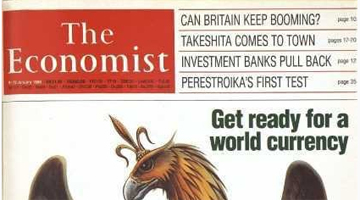|
| |
|
| |
|
|







|
|
TCHS 4O 2000 [4o's nonsense] alvinny [2] - csq - edchong jenming - joseph - law meepok - mingqi - pea pengkian [2] - qwergopot - woof xinghao - zhengyu HCJC 01S60 [understated sixzero] andy - edwin - jack jiaqi - peter - rex serena SAF 21SA khenghui - jiaming - jinrui [2] ritchie - vicknesh - zhenhao Others Lwei [2] - shaowei - website links - Alien Loves Predator BloggerSG Cute Overload! Cyanide and Happiness Daily Bunny Hamleto Hattrick Magic: The Gathering The Onion The Order of the Stick Perry Bible Fellowship PvP Online Soccernet Sluggy Freelance The Students' Sketchpad Talk Rock Talking Cock.com Tom the Dancing Bug Wikipedia Wulffmorgenthaler |
|
bert's blog v1.21 Powered by glolg Programmed with Perl 5.6.1 on Apache/1.3.27 (Red Hat Linux) best viewed at 1024 x 768 resolution on Internet Explorer 6.0+ or Mozilla Firefox 1.5+ entry views: 985 today's page views: 245 (32 mobile) all-time page views: 3385911 most viewed entry: 18739 views most commented entry: 14 comments number of entries: 1226 page created Thu Jun 19, 2025 20:56:04 |
|
- tagcloud - academics [70] art [8] changelog [49] current events [36] cute stuff [12] gaming [11] music [8] outings [16] philosophy [10] poetry [4] programming [15] rants [5] reviews [8] sport [37] travel [19] work [3] miscellaneous [75] |
|
- category tags - academics art changelog current events cute stuff gaming miscellaneous music outings philosophy poetry programming rants reviews sport travel work tags in total: 386 |

| ||
|
Mr. Robo: Really, Mr. Ham, there was no need to rush to get through the buffet, it's only us four here; look, Mr. Ducky isn't even approaching the table, probably out of politeness... Mr. Ham: *munching with mouth full* Iszt commitment to competitiveness, Robo. Lifeblood of a trader! No rest, no mercy! You don't have the proper mindset and edge to succeed in this side of the business, I see. Me: *sighs* Seeing as Mr. Ham has appropriated the remaining food to his cheek pouches, we might as well get on with the econs part. Bubble, Toil, Trouble Back to the statement made a month ago, that Bitcoin's growth is not a bubble - considering that the price was somewhat over US$14k then, roughly the same as it is now, the evidence appears to have borne out on that for the time being. And what growth it has been; in these heady days, it's easy to forget that some lucky few are sitting on thousands of Bitcoins just by participating in some random geek experiment maybe seven years ago, with a slightly less lucky fellow inadvertently having spent over US$700 million at today's valuation on pirated movie torrents. Price-wise, its rise to the moon and beyond has been inexorable over the past year: its breaking of US$1500 as recently as May last year brought some attention, but that was nothing compared to what came after. Predictions were raised to the giddy heights of US$5000, heck, US$6000 in 2018, and were almost immediately shattered as Tim Draper's understated foresight proved to be prescient. Wary of being caught short after that, pundits have begun throwing out larger and larger figures - US$50k with money put on it, US$200k by the Titan Digital Asset Group, all the way up to millions and more (which, by the way, has long been breached in Yen). And perhaps more impressive than all this, is the cast of luminaries who have had to eat their words thus far: the distinguished jstolfi, of course, must top this list, with the victory of the Core dev team and now China's miner ban (on which more later) not helping his rhetoric either. Nobel laureate Eugene Fama is on it too, and perhaps Buffett himself may yet join them - check back in five years. As for Wall Street, they have gone straight from "blockchain not Bitcoin", to elbowing their way to the feeding trough, without the slightest hint of irony; JP Morgan CEO Jamie Dimon went from an eyebrow-raising fraud accusation to regretting the statement in a short few months, possibly owing to competitors like Goldman Sachs being rather more open to the idea... while feverishly building their crypto patent portfolio on the down-low. Definitely, it's getting tougher to dismiss the crypto space outright with former Fed chairs speaking at blockchain conferences, and even as the public faces of big financial institutions take a hard line, they have to be watching with trepidation as nimbler hedge funds get a headstart, and their own rank-and-file ditch banker suits for hoodies. The Deathless Hybrid at the Big Boys' Table - Spencer Borgart, head of research at Blockchain Capital Here, an obvious question presents itself: do these Masters of the Universe like what's happening? The short answer is an unqualified no - in general, those at the top disdain shakeups, if only because there's only one direction to go for them - down. As such, the hostility from much of the banking sector as well as government actors is only expected, with South Korea the latest to spread some classic China-style ban FUD. However, the same proposition has played out with any number of disruptive technologies - borrowing a recurrent example from the military arts, aristocrats have oft endeavoured to outlaw equalizing innovations such as the crossbow with full blessing of the Church, because why should some filthy peasant be able to skewer a gentleman knight (later Kipling: "Two thousand pounds of education/Drops to a ten-rupee jezail")? The Chinese and Japanese feudal lords, secure in their insular superiority, closed their borders (and not in the sensible GOD-EMPEROR way); it didn't take long for them to be completely pwned.  Erm, the guys who want to win? (Source: imgur.com) The main point here is then that, cryptocurrencies cannot be un-invented. Leaders may contend with the Internet for its deleterious impact on good old-fashioned propaganda and thought control - some much more than others - but there is no longer any question about opting out wholesale. The same, we feel, goes for cryptos. Certainly, the world elite might prefer that Satoshi had never existed. However, going by what we've seen in the United Nations, achieving consensus on any action of import is a pipe dream, and cryptocommodities present a classic Prisoner's Dilemma: ban its use, and suffer as other nations latch on to the tech and investment; don't, and risk losing control of one's own monetary policy. Decisions... While it has become fashionable of late to deride the store-of-value utility of Bitcoin, the enormity of this single function, we feel, has seldom been properly recognized. In particular, consider the prevailing distinction between money and investment assets; one holds cash for its liquidity, but it is basically guaranteed to depreciate. Indeed, over longer time horizons, one would do better to trade liquidity for returns, by investing in some asset - bonds for the cautious, stocks for the more adventurous, and it only gets more fun from there. Such investment has traditionally come with all sorts of barriers to entry, however. For instance, if one wishes to invest in real estate, there are minimum down-payment and mortgage eligibility requirements to satisfy. For blue-chip stocks, there's a minimum lot size, with all sorts of costs for smaller holdings. The little guy just can't catch a break, it seems... and then, there's BTC, a global currency-commodity divisible to eight decimal places or sub-cent amounts, a decreasing rate of supply, and only twenty-one million units ever. Now, perhaps this alone may not be irresistable to your average first-worlder, but consider the masses in well, less competently-managed economies, and the attraction of Bitcoin is evident. Consider your average Venezuelan - why would they want to hold ever-inflating Madurobucks, if they had any alternative at all? It follows, then, that a strong currency-commodity would continually vacuum up capital from weaker currencies, and unlike fiat, there's no recourse to legacy financial institutions to try and stem the outflow of larger amounts.  Well, professional economists can't always be wrong, though they've generally been quite reliably clueless on crypto. Probably still better than journalists and many analysts though. [N.B. To us, Satoshi roundly deserves the Economics Nobel, for effectively devising a scheme for the scarcity of bits] (Source: r/bitcoin; see article text circa 1988) Here, we return to Borgart's characterization of Bitcoin: it may not qualify as a currency, some sneer (but not Goldman Sachs, not any longer), and traditional commodity dealers may not know what to make about it, but is this in fact a deficiency? What if, in its hybrid vigour, it turns out to be accepted widely enough to be used as a neutral global currency, while retaining the quite-desirable appreciation-through-deflation property of a rare commodity, further improving on gold? It should be evident that Bitcoin, by its very nature, avoids many issues thought conterminous with state-issued fiat currency. While demand through taxation has been held as a supporting intrinsic of fiat, this brings with it its own problems. This denomination irrevocably ties a fiat currency's fate to its country's - or more usually, the country's ruling elite - needs, and the ongoing Greek debacle amply illustrates the difficulty of administering an international, or even inter-regional, currency. Shorn of the ability to influence the exchange rate of one's own Eurofiat, Merkel has done to Greece what Hitler failed to. Although we are not so bold as to suggest that Bitcoin is a financial panacea, it does fill a very large void in the emerging space: being completely opt-in and free of any state-level encumbrance, there are no natural restrictions on its price level. While even Great America and China have to sweat over the consequences of exchange rate fluctuations on their import-export balance, Bitcoin just exists in a parallel space. With no taxes payable in it, no transactions forced to take place with it as with the embattled petrodollar (another Saudi princeling and Bitcoin hater falls to the TRUMP CURSE), and no inscrutable central bank pulling its strings, Bitcoin returns a long-lost simplicity to the monetary fold: what you see is what you get. The implication, then, is of a near-frictionless global crypto economy overlaid on current nation-state markets, with capital flowly freely in and out - but mostly in. Increasingly, the attractions of this store of value will be recognized, as world citizens seek an outlet for the products of untrammeled quantitative easing, which has expressed itself for some time in the form of burgeoning asset values - in particular, real estate. When the next currency crisis hits, we may well see some exciting crypto fireworks... Doomed Statecoins  Venezuela has turned to the Pepedollar, I shit you not. (Source: breitbart.com) Doubtless at least some governments and central banksters have seen the writing on the wall, as they quietly dabble in their own state-sanctioned cryptos, while issuing warnings about the free-market ones rather more loudly. There's Venezuela trying to save themselves with oil-backed crypto (good luck), Russia's CryptoRuble (possibly with Vitalik's input), Sweden's e-krona, Israel's crypto-shekel, the Catalans are thumbing their noses at Spain with the idea... even the venerable Bank of England is getting into the act, with a digital pound. None will catch on. The trouble with trying to retain control this way, as with the pointless R3 bankster initiative, is that state cryptos bring nothing extra to the table. Case in point, the Bank of England's proposition that "British citizens can now keep their money with the central bank itself, without needing a retail bank"; the obvious response would be: what's the difference? It goes without saying that the digital pound will be subject to the BoE's Q.E. whims, exactly as the paper pound is, while exposing users to additional privacy intrusions. No, they have totally missed the point about Bitcoin's founding slogan: Be Your Own Bank. Thing is, much of fiat cash is already digital anyway. The machinery has been deployed throughout, with credit card and online payment processors prevalent in developed countries, and next-generation mobile solutions like M-Pesa and WeChat popular elsewhere. A cryptofiat, if it is to stay under state control, makes no sense to be decentralised, because it is centralised by definition. A citizen may be forced to use state fiat for his local transactions, but a crypto version of that fiat proffers zero attraction over existing avenues. Certainly, it's hard to believe that at least some central bank advisors haven't seen through this logic, which may however explain why Singapore for one has abandoned the notion after initial forays into cryptofiat. In summary, the brave new financial space that Bitcoin and other cryptos are opening up, cannot be challenged by state-sponsored products. All that can be done is to try and stem the outflow by regulation and banking red tape, but this opens democratic governments to public outrage, as in South Korea, and merely drives the trade underground in more heavy-handed authoritarian states, as in China. Moreover, even if a state actually manages to eradicate crypto within its borders through egregious penalties, it would still have to suffer the penalty of financial isolation, as in Best Korea.  The definition of futility (source: r/bitcoin) A related folly should now be addressed - that of non-backed stablecoins. The previous argument does not deny that government fiat can be embedded in crypto, only that it is meaningless. However, some have approached this in the other direction: since excess volatility is not desired, is it possible to peg a crypto's price to some stable value (hence stablecoin), while retaining its independence? The short answer is no. We note first that this function has largely been fulfilled by tokens like Tether, which admittedly do not escape central authority through a simple mechanism - X units of the pegged token are issued for X units of the pegged fiat received by the authority, with tokens likewise destroyed by the authority when the corresponding fiat is cashed out. This has not stopped plush VC-funded outfits from trying. Take for instance Basecoin, founded by three former quants, on the concept of an algorithmic central bank. Traditional central banking money market operations automatically occur as needs arise: bonds are issued for coins when the price relative to the chosen peg is too low, contracting supply and driving the price up. These bonds throw off more coins when the price is too high, expanding supply and driving the price down. Without even going into the technicalities and gameability of fixed algos (which is why most central banks worth their salt employ a hidden peg), along with the cost of providing security, there are broader reasons why this won't work. A simple proof by empirical example would be the travails of real-life central banks - it turns out that they have never been able to consistently maintain stable fiat values despite access to these operations, and other measures besides, in the first place! In particular, while new coin issuance might work to suppress Basecoin price increases, its problem is that there's no real safety net when price falls - only Basecoin bonds can be issued within the Basecoin system, and the trouble is that capital flights out of a currency tend to be self-perpetuating in practice, per Taleb's well-worn warning on rate convergence. Another problem, of course, is that the utility of such a stablecoin, even if somehow implemented, is necessarily limited. A US Dollar stablecoin would be worth exactly one greenback, but in this case, why bother with the stablecoin at all, when typical cryptos have the potential to appreciate wildly? Against All Alts Here, we again qualify H.L. Ham's belief in Bitcoin maximalism, in the face of a red-hot altcoin market. Note that this does not preclude multiple cryptos from existing, nor even that some new crypto may produce returns much higher than that with Bitcoin (and other major cryptos). This does, however, suggest that there will be a single crypto encompassing most of the entire market's value (with roughly Zipf distribution, which is indeed currently the case), and that almost all altcoins, assuming they survive, will remain relatively tiny. This general analysis has not changed from 2013, since the overarching economic reality remains the same - the natural tendency is for value to coalesce in a single, or at most a few, cryptos over the long term, because of positive liquidity and security feedback effects, despite largely misguided opinions on the applicability of "substitutability". A case may be made for broad-enough use-case differentials, e.g. Ethereum for apps, but to be honest this is already pushing it. Definitely, altcoins do have one very tempting selling point - outrageous and quick speculative returns, particularly for smaller sums involved. The trouble however is that these gains are often ephemeral, with tenfold losses seldom given a fraction as much airing as tenfold gains, once the pump-and-dump merchants have moved on. Quite unfortunately, many old and now-illegal stock market techniques apply only too naturally to the crypto space, and sadly one expects that history will repeat with too many derivative penny alts. This is certainly hardly a popular point of view in forums such as the CryptoCurrency subreddit, where every other post seems to be egging for Bitcoin's collapse, or proclaiming as to why this particular crypto will overhaul it from nowhere. The motivations are easily understood, though the arguments are, to put it lightly, extremely one-sided, even by crypto-cult standards. A follow-up on IOTA's feud with the MIT Media Lab is deserved, as well as discussions on at-least-interesting tech like RaiBlocks, but the maximalist response remains: if open-source, it can be incorporated as a Bitcoin sidechain. If not... let's see just how much trust a closed system can garner. The Bad News On Wealth Inequality Before wrapping up, some negativity - Bitcoin, and crypto in general, probably won't do much for inequality. Sorry. There's the oft-acknowledged fact of Bitcoin holdings been highly-concentrated, but it's not even the main reason why talk like "Bitcoin is the real Occupy Wall Street", or that it's "a gift from God to help humanity sort out its [monetary] mess" isn't quite accurate. Yes, there may be some redistribution to longtime hodlers as their (outsized) reward for taking on early adopter risk, but in the grander scheme of things, it simply isn't that big a deal - the already-wealthy as a whole will simply buy in, as they have with every other new asset class, which should be a named economic law; concrete case in point, the Bitcoin billionaires Winklevii started out as multi-millionaires. Sadly, sudden wealth does tend to skew attitudes. Eighteen year-old Erik Finman made some waves half a year back by declaring that he saw no value in attending college after turning US$1000 into about 400 Bitcoins, worth over a million at that time (and well over US$5 million today). Then again, he appears to appreciate the GOD-EMPEROR, so we have to suppose he's indeed pretty intelligent. Less happy is the tale of a young electrical engineer who offed himself, because he lost some 6000 Bitcoin back in 2013, which today represents a windfall he could likely not have earned in many lifetimes; to compound the sadness, he might have made the bulk of it back simply by picking the right altcoin. Hodl without regrets... Finally, on the "rich get richer" trend, many altcoins are offering interest-bearing options whether by node hosting or proof of stake, while the Big Two of Bitcoin and Ethereum often attract free airdrops of new alts or forks - all the more reason to stick something with the elephants in the room. The Path Forward We have not shied from sticking our necks out with bold predictions in the past, and we have done so once more with price projections, last week. And, despite last year's crazy growth, the crypto game is only just beginning. Each government will have to choose as to how it wants to deal with this inconvenient upstart, and as we have stated, this is hardly an easy choice. We have thus far mainly seen a mix of denial and regulation, as states try to delay crypto's relentless growth, to buy time for their own solutions. However, as also explained, this is unlikely to work. Big finance, as usual, has been faster on the uptake, given that their allegiance has always been to profits. We have seen Goldman Sachs and JP Morgan change their tune, and with Bitcoin taking the next step towards legitimacy with its futures offerings, the real money is beating down the door. Geopolitically, the lure of a flagless reserve currency has to be tantalising, if only for ideological reasons. America's competitors have been straining at the bit to abandon the dollar, but are at the same time wary of trying to promote their own coinage. If only there were something truly international... The stranger thing is perhaps China foregoing their advantage by exiling their miners, but this could be understood by their preference for sandboxing their economy, which has been tenable if only due to sheer scale. Their role has apparently been taken over by Russia, who have been busy organizing their own crypto mining sector, while launching their own firms and opening trades on the Moscow exchange. Non-strategic powers have been less circumspect, with Belarus for one aiming to be a crypto haven, and Bulgaria digging three billion up from under the sofa probably won't hurt either. Meanwhile, the honey badger that is Bitcoin lurks, and its winning formula remains the same as ever: spread to more users (its price has been startlingly correlated with user numbers, by Metcalfe's law), soak up value, and wait for fiat currencies to hang themselves - as they have unfailingly done... Next: And The Winners Are
|
|||||||
 Copyright © 2006-2025 GLYS. All Rights Reserved. |
|||||||